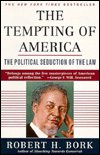Interview With a Vampire Chronicler: Anne Rice Meets Christ the Lord.

If you haven't heard, Anne Rice (of the Vampire Chronicles) has returned to her childhood faith. That's a story worth reading I'm sure. But her latest book may be even more remarkable. I liked the interview and article in Christianity Today, and enjoyed a very personal discussion of the author's pilgrimage on PBS tonight (12/16)--click here.
The new book is called Christ the Lord: Out of Egypt, a fictional account of Jesus' seventh year and his family's return from Egypt to Nazareth. It should be noted that it is to the Catholic church that Rice has returned, and the apocryphal gospels appear to have an influence. There is the famous scene of Jesus healing a bird, and moments when the seven-year-old wrestles to understand his ability to heal and to raise the dead, not to mention his unique birth.
At the risk of being excommunicated, I can admit this stuff doesn't threaten me. I was a Christianity major and decided years ago that Jesus never healed a dead bird or did anything else. And I love Phillip Yancey's observation in the Jesus I Never Knew. He says the miracles in the apocrypha show Jesus using His power for Himself, in exactly the sort of selfish way that He refused to use those powers when later tempted by Satan.
But a year or two ago, I was persuaded by another preacher who simply said of the wedding at Cana, "look at Mary's confidence in the power of her Son. She went to Him, knowing He could do something if He wanted to, and then she told everyone to do whatever He said." Clearly she and Jesus had confronted His power before. And why is such an idea sinful? If Jesus healed someone before the Bible's first miracle (at Cana), that does not necessarily imply that He did so in a selfish or ungodly/sinful way. (And lest you argue Mary said these things because of her faith, consider the gospel accounts of various times when Jesus was told his 'mother and brothers' had come for him--each time because they thought He was crazy and they wanted to take Him home. I'm not convinced Mary had any better understanding at any time than did the usually-confused disciples. But at the wedding in Cana she thought, I know someone who can fix this wine problem.)
Several reader/reviewers on Amazon.com complain Rice is still steeped in the occult, or she is a wolf-in-sheep's clothing. They are offended that any artist would imagine such scenes as Jesus 'wrestling' with his identity. I might have felt the same way once. But no longer.
In high school, an adult (Lee Poquette) told me about a book in which a young Jesus had to address the affections of girls, and his own interest in them. That was too much for my young mind. But years later, I am sure exactly that situation must have come up. The point is not that He didn't face tough questions, but that He who was fully man and fully God found the right answers. But being fully man, He would not just dismiss things. He would have grappled. (See Garden of Gethsemane.)
Another reviewer, calling herself a theologian, complains that Rice writes as if Herod's slaughter of the Innocents is real. (God forbid.) The alleged theologian says Matthew made it up. What bothers her is that the boy Jesus spends a few days brooding about the deaths. According to Rice, when Jesus learns about the massacre, he struggles with his own grief and compassion, and doesn't want to believe it all happened because of him.
--But is that so unbelievable? For a boy who is fully-God and fully-man?
By the way, Rice tells the story of her return to the faith in the afterword to her book. I haven't read the book, but the interviews I have read and heard satisfy me. We do not see eye-to-eye, but she's no mole from the dark side.
Rice also discusses the sorry state of modern theological education, apparently astounded to discover the faith-lessness and skepticism inherent in so-called "higher criticism," and deconstructionism. I'm not sure of all her opinions, but I agree with what I have read. Modern theology studies have nothing to do with faith, and precious little to do with common sense. What at first seems intellectual and sophisticated turns out for many of us to just be "taking a watch apart" not with a jeweller's tools, but with a mallet. And of course, few professors care to put it back together. If they destroy your faith, well, now you've been disabused of those crippling notions. ("And that is why you enrolled here, isn't it--to have your faith destroyed?)
Disclaimer: I have not seen the book, and may realize after flipping through it that I won't like it. Or I may buy it and then later become embarassed about this post. So I said all that to say, these are my thoughts, not about the book, but about the things I am reading and hearing about the book.


1 Comments:
Nice quote. Not germaine, but nice. Who are you, exactly? Your blogsite, while thorough and full of great quotes, leaves me wondering if the above comment is some computer-generated thing, despite the word-verification. Let me know....
By S., at 9:36 PM, December 17, 2005
S., at 9:36 PM, December 17, 2005
Post a Comment
<< Home